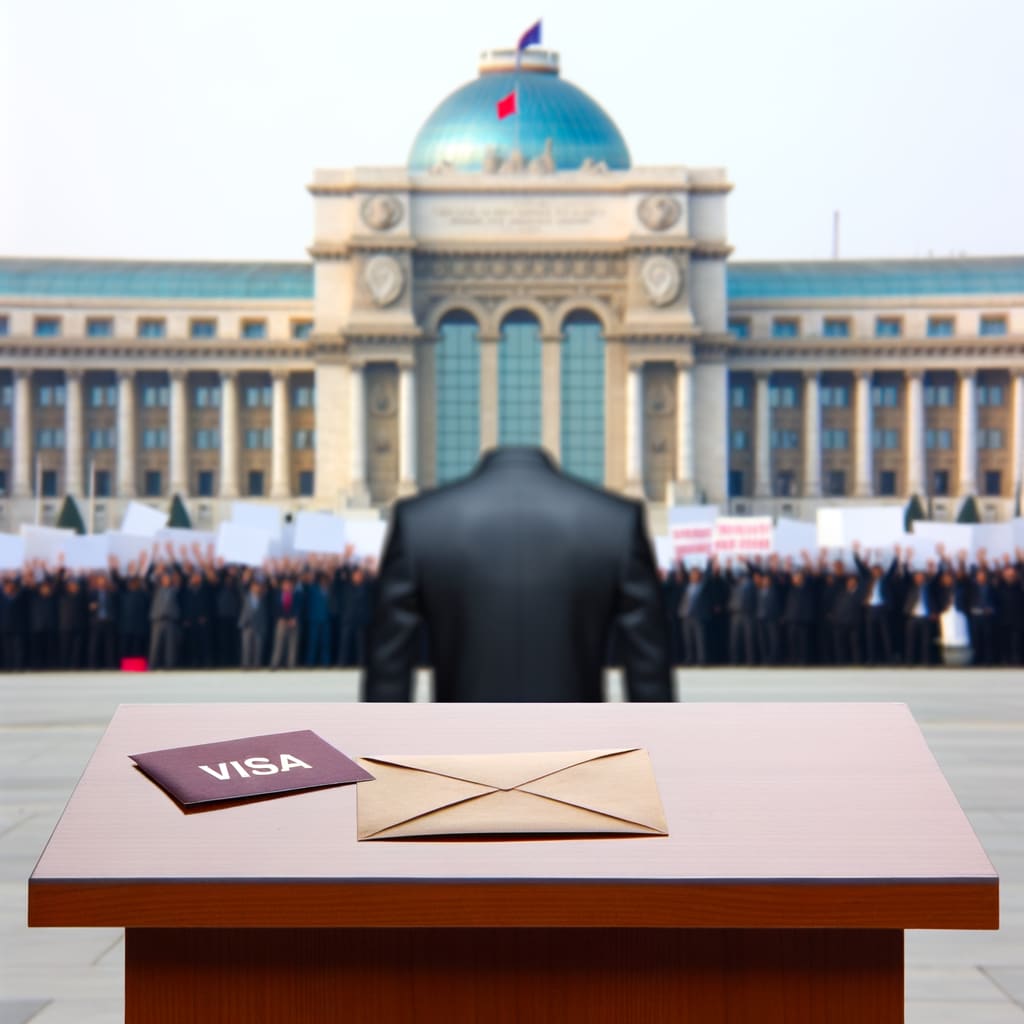U.S. Revokes Colombian President's Visa Over Comments at Pro-Palestine Rally
The United States State Department announced late Friday that it would revoke the visa of Colombian President Gustavo Petro due to his reckless and incendiary actions
during a pro-Palestine demonstration in New York City. Petro, who was in the city for the UN General Assembly, is alleged to have urged U.S. soldiers to disobey orders from President Donald Trump.
Background and Context
Petro's comments were made at a rally protesting against Israel and its Prime Minister, Benjamin Netanyahu, who was in New York to address the General Assembly. Petro, a left-wing leader and a critic of Trump's administration, has been vocal in his opposition to Israel's operation in Gaza.
During his speech, Petro called for an international armed force, larger than that of the U.S., to liberate Palestinians. He shared a video of himself speaking in Spanish, calling on nations of the world
to contribute soldiers for this army. He also explicitly urged U.S. soldiers to disobey Trump's orders and not to point their guns at people.
The State Department responded swiftly, posting on social media, We will revoke Petro’s visa due to his reckless and incendiary actions.
Key Developments
The revocation of Petro's visa comes on the heels of the annual meeting of the U.N. General Assembly in New York City this week. Petro's remarks were made during a pro-Palestine march that happened alongside the assembly.
Videos circulating online show the Colombian President addressing a crowd gathered at the demonstration. His remarks sparked controversy, with some seeing them as a call for disobedience and incitement of violence.
The Trump administration has been known for its confrontational approach to Latin America, and this move further amplifies the existing rifts in the region.
Implications and Reactions
The decision to revoke Petro's visa has been met with a mixed response. While some view it as a justified response to what they perceive as incendiary remarks, others see it as a restriction on free speech and an attempt to silence criticism of U.S. foreign policy.
The Colombian embassy in the U.S. has not yet responded to the news, and it remains unclear how this decision will impact U.S.-Colombian relations or the wider Latin American region.
Current Status
As it stands, President Petro's visa revocation is a clear signal from the U.S. administration that it will not tolerate what it deems as incitement or calls to disobey orders from President Trump. It also raises questions about the extent to which foreign leaders can express their views on U.S. soil without facing repercussions.
The story continues to develop, and it remains to be seen how this incident will affect the already tense U.S.-Colombian relations and the wider international discourse surrounding the Israel-Palestine conflict.

